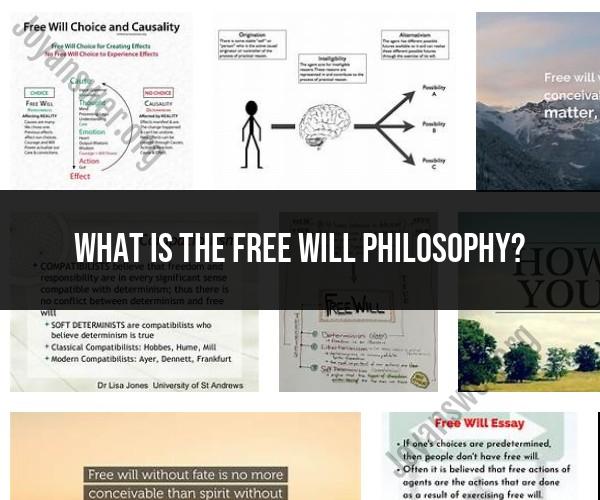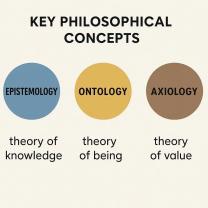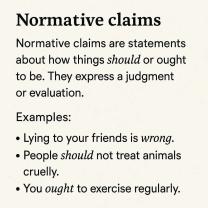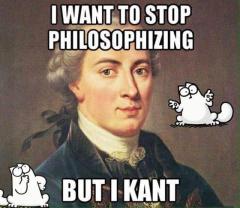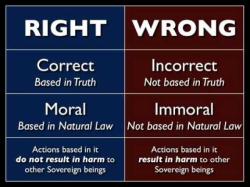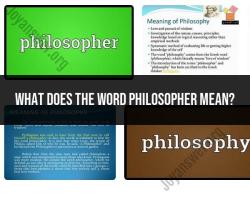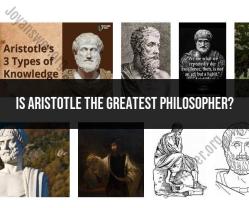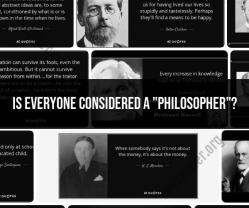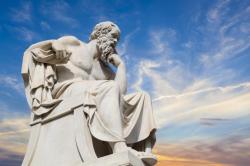What is the Free Will Philosophy?
Free will philosophy is a concept rooted in philosophy, theology, and psychology that explores the idea of human beings possessing the capacity to make choices and decisions independently, without being determined by external factors or forces. It is a complex and debated concept with various interpretations and implications. Here are some key aspects of free will philosophy:
Definition of Free Will: Free will refers to the belief that individuals have the ability to make choices and decisions that are not solely determined by factors such as genetics, environment, upbringing, or divine predestination. In other words, individuals have the power to act according to their own desires, intentions, and reasons.
Compatibilism vs. Incompatibilism: Philosophers have debated whether free will can coexist with determinism (the belief that every event, including human actions, is determined by preceding causes). Compatibilists argue that free will can exist within a deterministic framework, suggesting that even if our choices are influenced by external factors, they are still free as long as they align with our desires and intentions. Incompatibilists, on the other hand, argue that free will and determinism are fundamentally incompatible.
Moral Responsibility: The concept of free will is closely tied to moral responsibility. If individuals are considered to have free will, they can be held morally accountable for their actions because they had the capacity to make choices. This is a central theme in ethics and legal philosophy.
Determinism and Challenges: Deterministic theories, such as scientific determinism or theological predestination, pose challenges to the idea of free will. If everything is predetermined, it raises questions about the true nature of human agency.
Religious and Philosophical Perspectives: Free will plays a significant role in various religious and philosophical traditions. For example, it is a central topic in discussions about human nature in Christianity, Islam, and Judaism. Philosophers like Immanuel Kant and Jean-Jacques Rousseau explored the moral and ethical implications of free will.
Psychological Studies: Psychology and neuroscience have also contributed to the discussion of free will. Some research suggests that our decisions may be influenced by subconscious processes, leading some to question the extent of our conscious control over our choices.
Deterministic Challenges: In addition to determinism, challenges to the concept of free will include debates about the role of genetics, environmental factors, and cognitive biases in decision-making.
Free will philosophy continues to be a subject of deep philosophical inquiry and debate. It has important implications for ethics, morality, law, and our understanding of human agency. While there is no consensus on the nature and existence of free will, it remains a fundamental and enduring topic in philosophy and other fields of study.
Overview of Philosophical Concepts of Free Will
Free will is the ability to make choices without being constrained by external factors. It is a complex concept that has been debated by philosophers for centuries.
There are two main types of free will:
- Compatibilism: Compatibilists believe that free will is compatible with determinism, which is the idea that all events are caused by previous events. They argue that even if our choices are determined by past events, we still have free will because we have the ability to choose between different options.
- Incompatibilism: Incompatibilists believe that free will is incompatible with determinism. They argue that if our choices are determined by past events, then we do not have free will because we cannot have chosen otherwise.
Perspectives on Human Freedom vs Determinism
Those who believe in human freedom argue that we have the ability to make our own choices and that we are not controlled by external factors. They often point to our subjective experience of freedom as evidence that we have free will.
Those who believe in determinism argue that all events are caused by previous events, including our choices. They often point to scientific evidence, such as the laws of physics, as evidence that determinism is true.
Debates about the Existence and Implications of Free Will
The debate about the existence of free will is one of the oldest and most important debates in philosophy. There are strong arguments on both sides of the debate, and there is no easy answer.
The debate about the implications of free will is also important. If we have free will, then we are morally responsible for our choices. However, if we do not have free will, then we are not morally responsible for our choices.
Conclusion
The debate about free will is complex and there is no easy answer. However, it is an important debate to have because it goes to the heart of what it means to be human.
